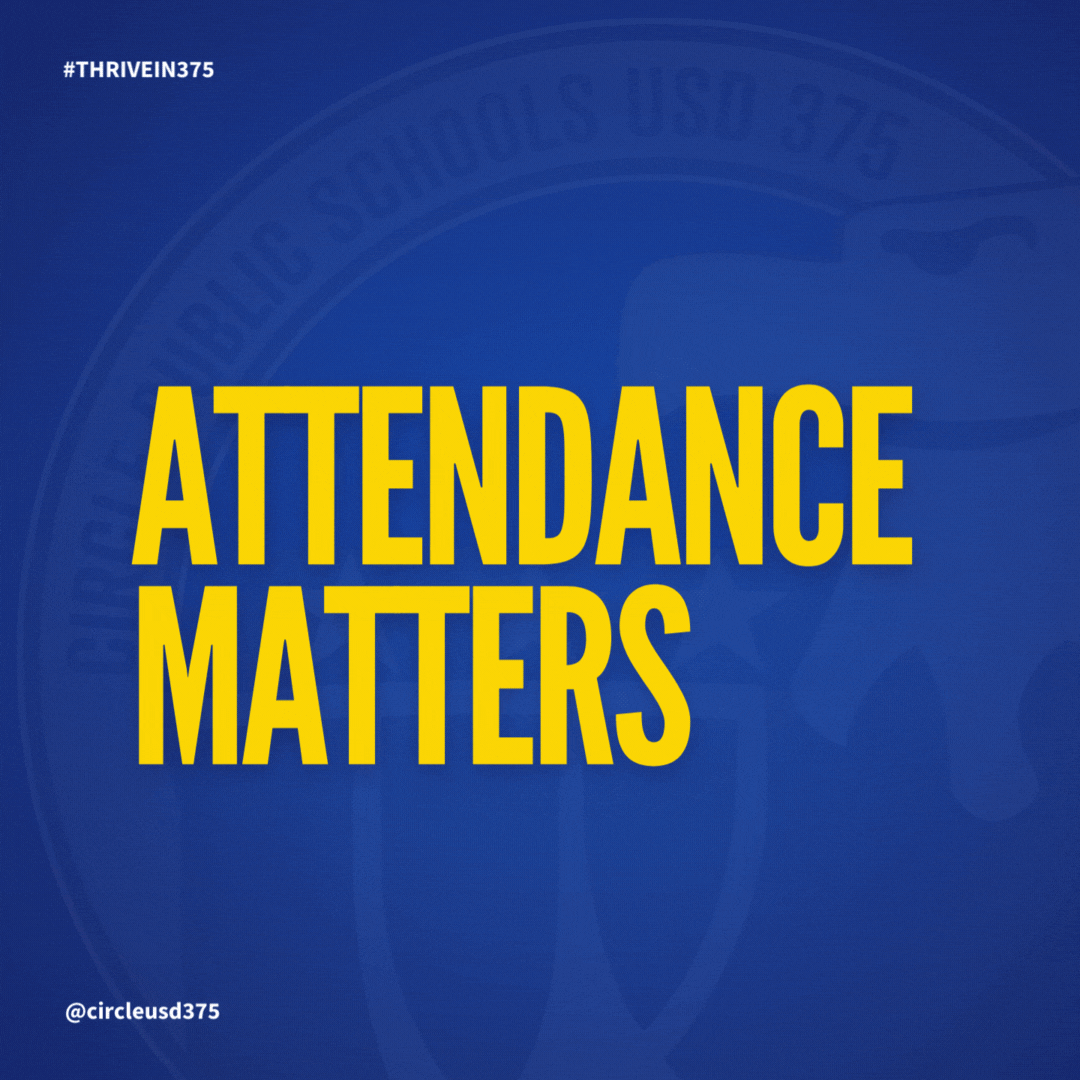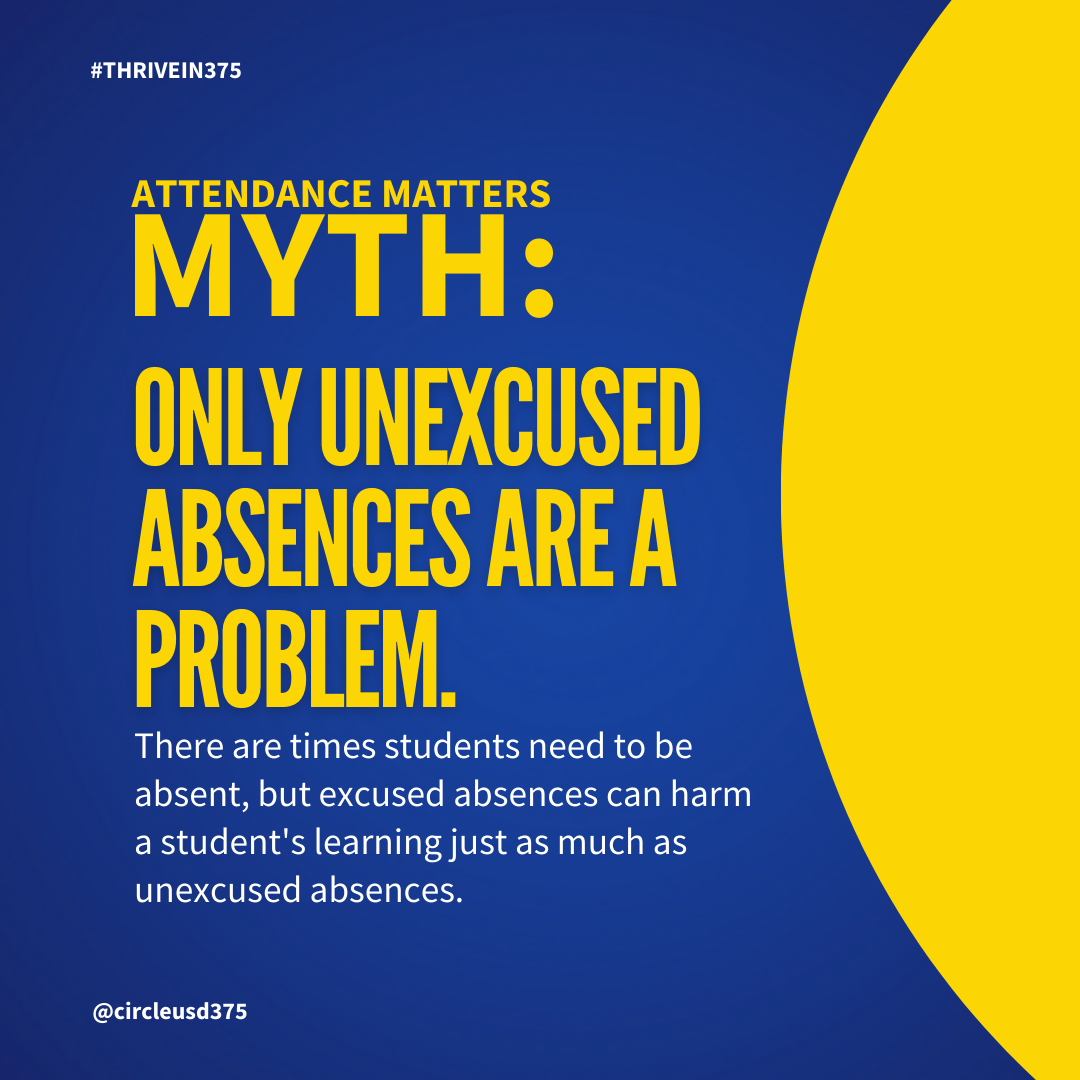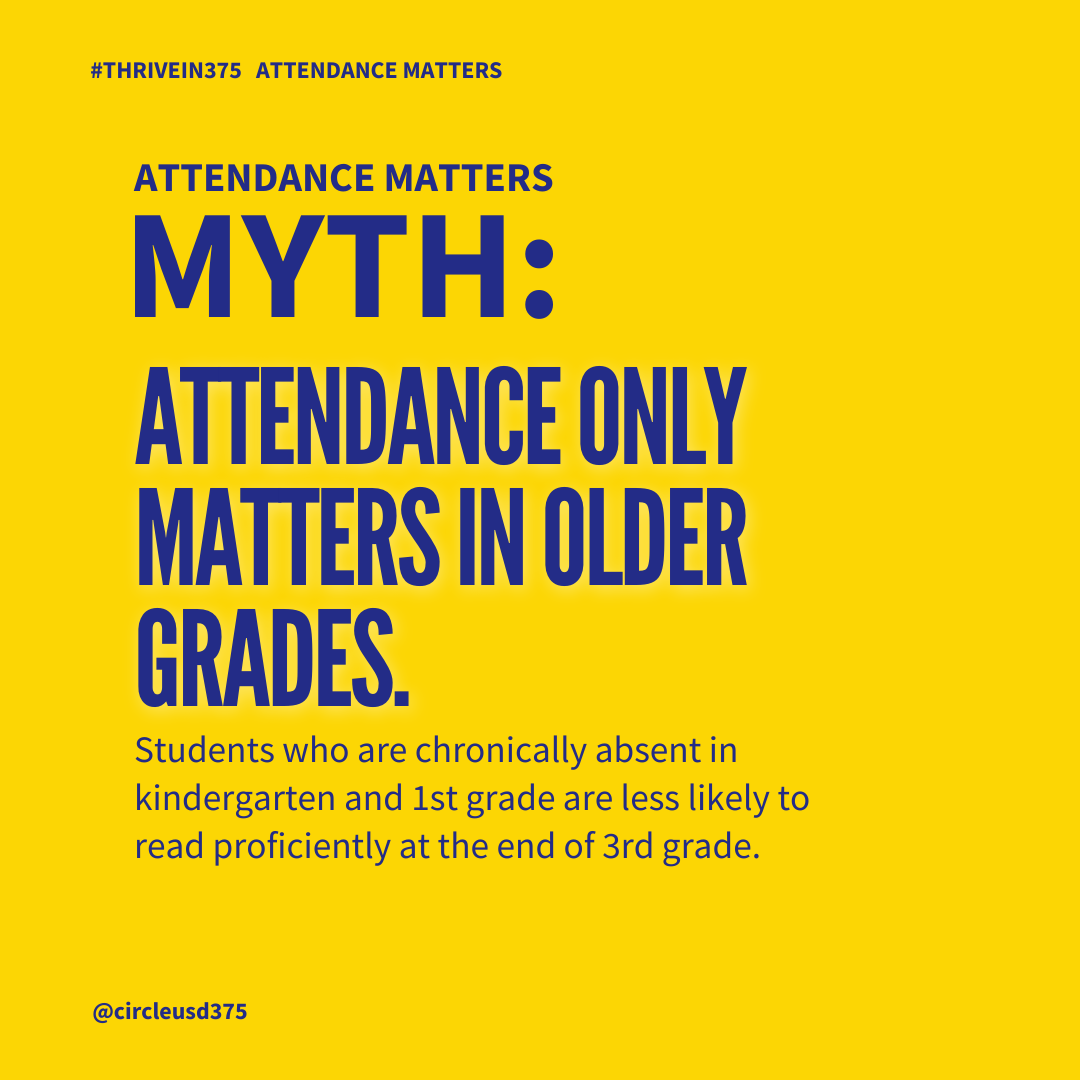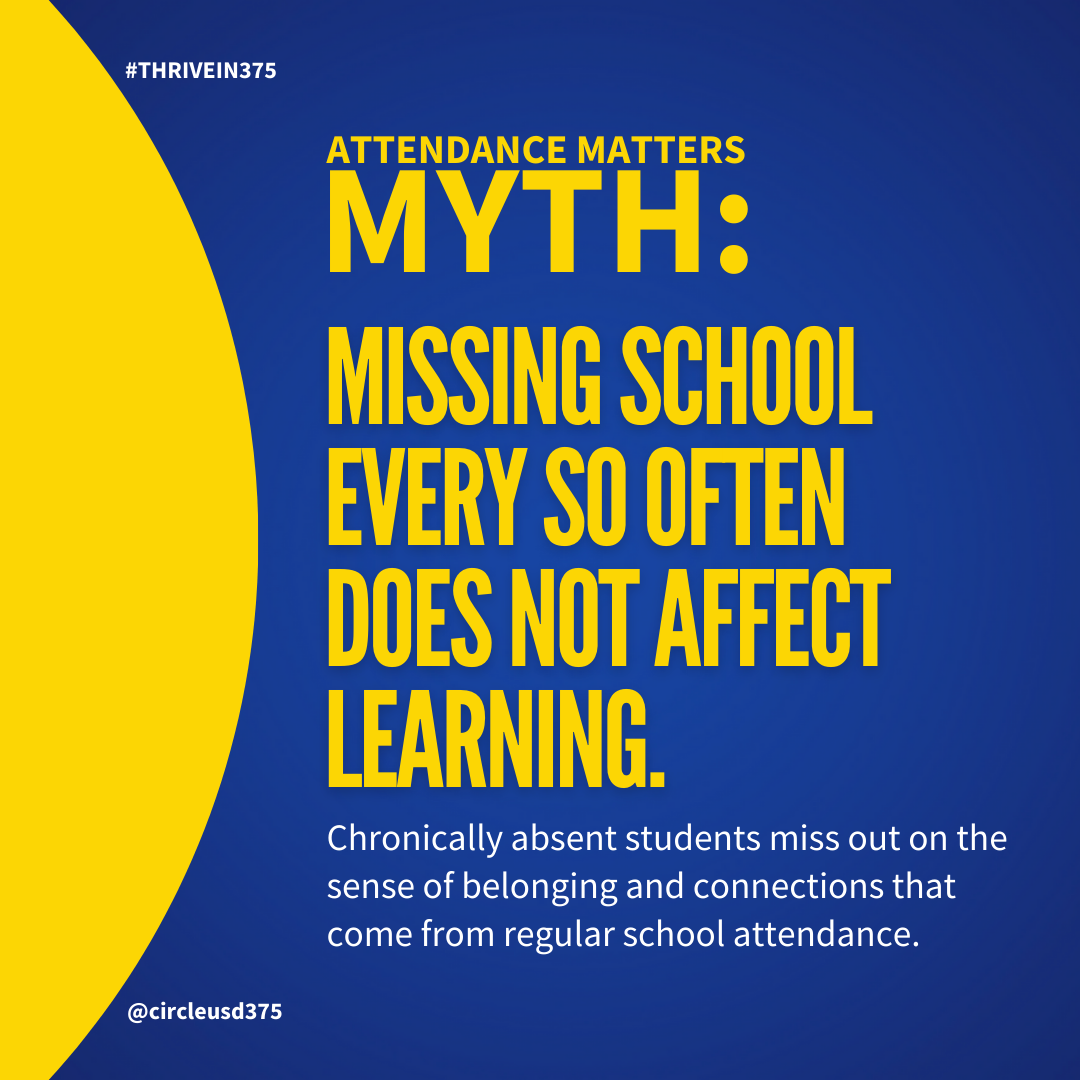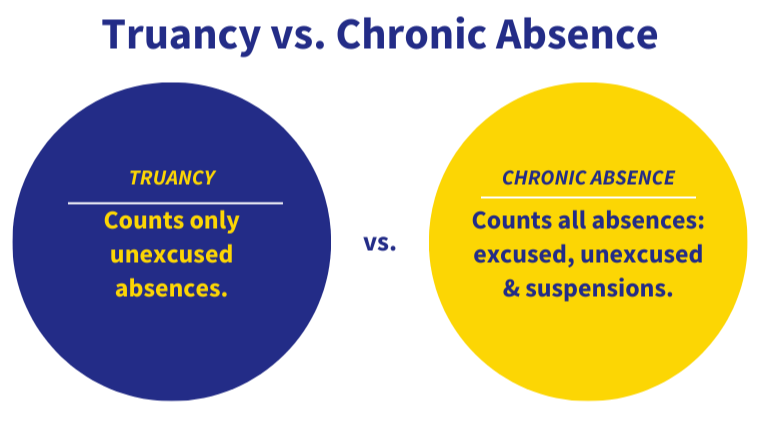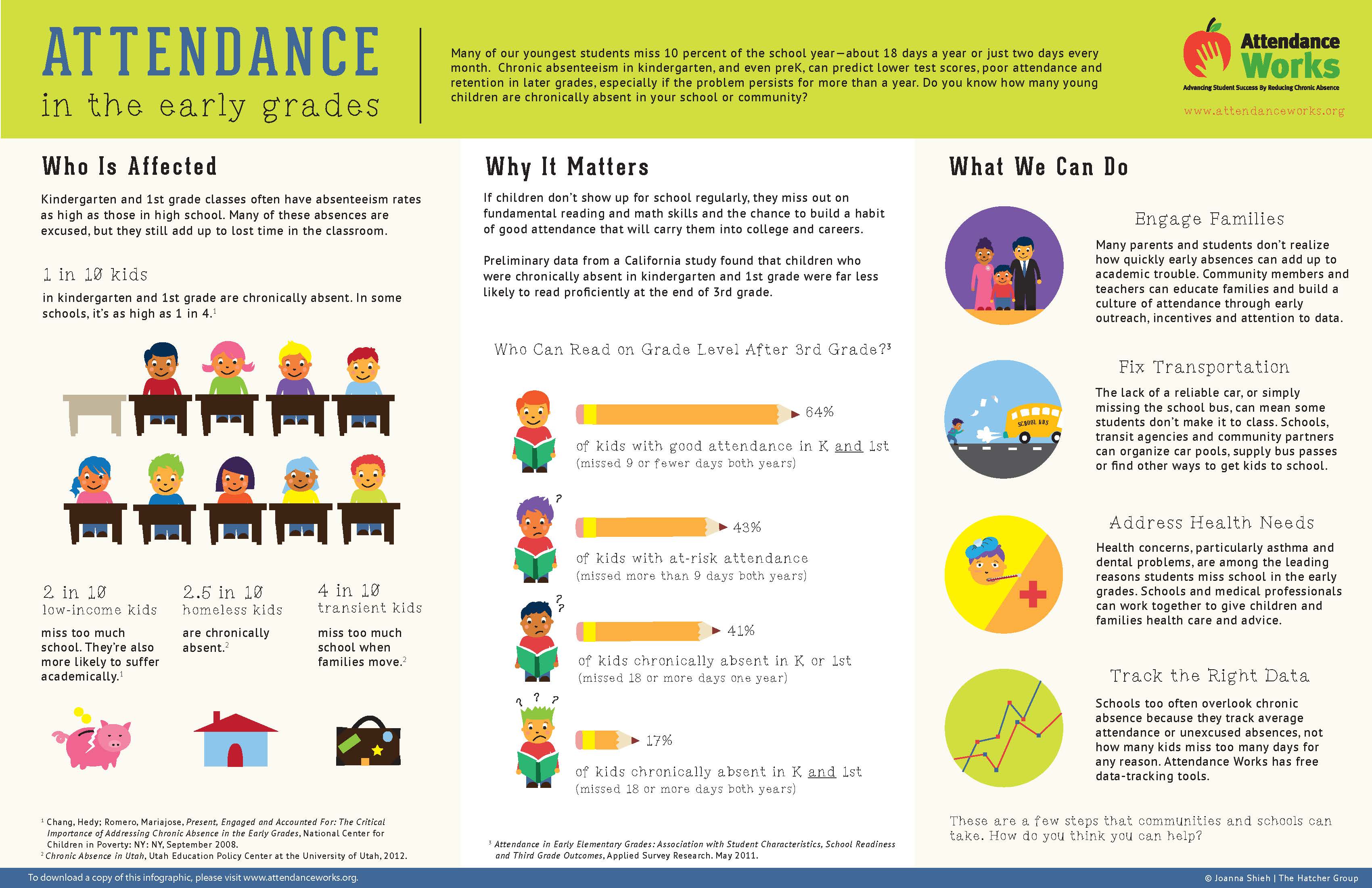Stay Connected, Keep Learning.
Did you know?
Starting in preschool & kindergarten, too many absences can cause children to fall behind in school.
Missing 10%, or about 2 days each month over the course of a school year, can make it harder to learn and read.
Students can still fall behind if they miss just 1 or 2 days every few weeks.
Being late to school may lead to poor attendance.
Absences and tardiness can affect the whole classroom if the teacher has to slow down learning to help children catch up.
Attending school regularly helps children feel better about school--and themselves. Start building this habit in preschool so they learn right away that going to school on time, every day, is important. Eventually good attendance will be a skill that will help them succeed in high school and beyond.

